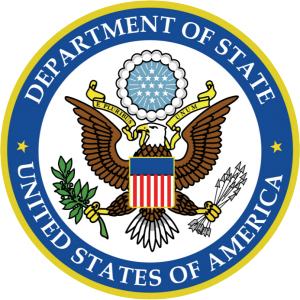Belarus still "an authoritarian state", U.S. Human Rights Report says
"Since his election as president in 1994, Aliaksandr Lukashenka has consolidated his rule over all institutions and undermined the rule of law through authoritarian means, including manipulated elections and arbitrary decrees," says the U.S. Department of State's Country Report on Human Rights Practices in Belarus for 2016.
"All subsequent presidential elections fell well short of international standards. The 2016 parliamentary elections also failed to meet international standards.
Civilian authorities, President Lukashenka in particular, maintained effective control over security forces.
The most significant human rights problems continued to be: citizens were unable to choose their government through elections; in a system bereft of checks and balances, authorities committed abuses; and former political prisoners’ political rights remained largely restricted while the government failed to account for longstanding cases of politically motivated disappearances.
Other human rights problems included abuses by the security forces, which reportedly mistreated suspects during investigations and in prisons. Prison conditions remained poor. Authorities arbitrarily arrested, detained, and imprisoned citizens for criticizing officials, participating in demonstrations, and other political reasons. The judiciary experienced political interference and a lack of independence; trial outcomes often appeared predetermined, and trials occurred behind closed doors or in the absence of the accused. Authorities infringed on the right of privacy. The government restricted civil liberties, including freedom of speech, press, assembly, association, and religion. The government continued to hinder or prevent the activities of some religious groups, at times fining them or restricting their services. Official corruption in all branches of government remained a problem. Authorities harassed human rights groups, nongovernmental organizations (NGOs), and political parties, refusing to register many and then threatening them with criminal prosecution for operating without registration. Violence and discrimination against women were problems, as was violence against children. Trafficking in persons, including state-sponsored forced labor, remained a problem, although victim identification and protection slightly improved. There was discrimination against lesbian, gay, bisexual, transgender, and intersex (LGBTI) persons; those with disabilities; Roma and other ethnic minorities; persons with HIV/AIDS; and those who sought to use the Belarusian language. Authorities harassed and at times dismissed from their jobs members of independent unions in state-owned enterprises, severely limiting the ability of workers to form and join independent trade unions and to organize and bargain collectively. Authorities also employed various means of forced labor.
Authorities at all levels operated with impunity and failed to take steps to prosecute or punish officials in the government or security forces who committed human rights abuses."
Read full Report here.


















